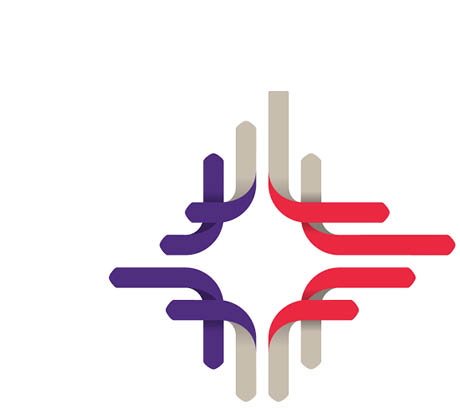-
Aviation Advisory
Our dedicated Aviation Advisory team bring best-in-class expertise across modelling, lease management, financial accounting and transaction execution as well as technical services completed by certified engineers.
-
Consulting
Our Consulting team guarantees quick turnarounds, lower partner-to-staff ratio than most and superior results delivered on a range of services.
-
Business Risk Services
Our Business Risk Services team deliver practical and pragmatic solutions that support clients in growing and protecting the inherent value of their businesses.
-
Deal Advisory
Our experienced Deal Advisory team has provided a range of transaction, valuation, deal advisory and restructuring services to clients for the past two decades.
-
Forensic Accounting
Our Forensic and Investigation Services team have targeted solutions to solve difficult challenges - making the difference between finding the truth or being left in the dark.
-
Financial Accounting and Advisory
Our FAAS team designs and implements creative solutions for organisations expanding into new markets or undertaking functional financial transformations.
-
Restructuring
Grant Thornton is Ireland’s leading provider of insolvency and corporate recovery solutions.
-
Risk Advisory
Our Risk Advisory team delivers innovative solutions and strategic insights for the Financial Services sector, addressing disruptive forces, regulatory changes, and emerging trends to enhance risk management and foster competitive advantage.
-
Sustainability Advisory
Our Sustainability Advisory team works with clients to accelerate their sustainability journey through innovative and pragmatic solutions.

-
 Asset management Asset management of the futureIn today’s global asset management landscape, there is an almost constant onslaught of change and complexity. To combat such complex change, asset managers need a consolidated approach. Read our publication and find out more about what you can achieve by choosing to work with us.
Asset management Asset management of the futureIn today’s global asset management landscape, there is an almost constant onslaught of change and complexity. To combat such complex change, asset managers need a consolidated approach. Read our publication and find out more about what you can achieve by choosing to work with us. -
 Internal Audit Maintaining Compliance with New EU Pension Directive IORP IIOn 28 April 2021, the Irish Government transposed IORP II (Institution for Occupational Retirement Provision), an EU directive on the activities and supervision of pension schemes, into law.
Internal Audit Maintaining Compliance with New EU Pension Directive IORP IIOn 28 April 2021, the Irish Government transposed IORP II (Institution for Occupational Retirement Provision), an EU directive on the activities and supervision of pension schemes, into law. -
 Risk, Compliance and Professional Standards FRED 82 – Periodic Updates to FRS 100 – 105The concept of a new suite of standards for the UK and Ireland, aligning with international financial reporting standards, was first conceived in 2002
Risk, Compliance and Professional Standards FRED 82 – Periodic Updates to FRS 100 – 105The concept of a new suite of standards for the UK and Ireland, aligning with international financial reporting standards, was first conceived in 2002 -
 Audit and Assurance Auditor transition: how to achieve a smooth changeoverAppointing new auditors may seem like a daunting task that will be disruptive to your business and a drain on the finance function. Nevertheless, there are a multitude of reasons to consider a change, including simply seeking a ‘fresh look’ at the business.
Audit and Assurance Auditor transition: how to achieve a smooth changeoverAppointing new auditors may seem like a daunting task that will be disruptive to your business and a drain on the finance function. Nevertheless, there are a multitude of reasons to consider a change, including simply seeking a ‘fresh look’ at the business.
-
Corporate Tax
Our Corporate Tax team is made up of more than 40 highly experienced senior partners and directors who work directly with a wide range of domestic and international clients; covering Corporation Tax, Company Secretarial, Employer Solutions, Global Mobility and Tax Incentives.
-
Financial Services Tax
The Grant Thornton team is made up of experts who are fully up to date in terms of changing and evolving tax legislation. This is combined with industry expertise and an in-depth knowledge of the evolving financial services regulatory landscape.
-
International Tax
We develop close relationships with clients in order to gain a deep understanding of their businesses to ensure they make the right operational decisions. The wrong decision on how a company sells into a new market or establishes a new subsidiary can have major tax implications.
-
Private Client
Grant Thornton’s Private Client Services team can advise you on all areas of financial, pension, investment, succession and inheritance planning. We understand that each individual’s circumstances are different to the next and we tailor our services to suit your specific needs.
-
VAT
Grant Thornton’s team of indirect tax specialists helps a range of clients across a variety of sectors including pharmaceuticals, financial services, construction and property and food to navigate these complexities.

The government’s “July Jobs Stimulus” is a €7.4 billion package of measures aimed at supporting the Irish economy in response to the impacts of COVID-19. The package contains a suite of tax measures to the value of €1.4 billion, the balance going to expenditure, grants and credit supports. The Financial Provisions (Covid-19) (No.2) Bill 2020 (“the Bill”) provides the proposed legislation for the tax measures.
Managing tax debt
As we expected, the Bill contains the legislation providing for the Debt Warehouse arrangements announced in May 2020 and currently in operation by Revenue on an administrative basis. The provisions permit the “ware-housing” of VAT and PAYE (Employer) taxes deferred for the period the business was and is unable to trade, or was and is trading at a significantly reduced level, due to the COVID-19 related restrictions. The period includes two months after the business re-commences trading. Essentially such taxes can be parked, with no interest accruing, until economic conditions improve. Terms and conditions must be satisfied.
A separate measure provides for a reduction in the interest rate applying to agreed late payments of all tax debt. Taxpayers that have declared but unpaid tax debts can avail of a reduced interest rate of 3% (down from 8% or 10%) provided they enter into a payment agreement with Revenue by 30 September 2020.
Employer support
A new Employment Wage Subsidy Scheme (EWSS) will replace the Temporary Wage Subsidy Scheme (TWSS) with new conditions and rules. It will be open to employers operating in all sectors of the Irish economy subject to meeting certain qualifying conditions.
- The Temporary Wage Subsidy Scheme (TWSS) and the EWSS will run in parallel until 31 August 2020 to allow certain categories of workers previously excluded, for example seasonal workers and new hires, to benefit from the EWSS.
- The EWSS is due to expire on 31 March 2021, the Bill provides for a later date than 31 March 2021 if specified by the Minister for Finance.
To hear more on the latest updates to the TWSS and EWSS register for our webinar on Friday 7 August at 3pm.
Measures for individuals
The help-to-buy scheme is enhanced now until 31 December 2020. The amount of relief an individual can claim is to be increased to the lesser of €30,000 (up from 20.000) or 10% (up from 5%) of the purchased price of a new home / self- build property.
The “Stay and Spend” incentive will give Irish “staycationers” a 20% income tax credit on spending of €25 or more on accommodation, food and non-alcoholic drinks up to a maximum of €625. This means that individuals can claim back a maximum of €125 by way of a tax credit. This measure will apply from October 2020 until April 2021.
Accelerated loss relief for self-employed individuals is a new once-off relief which will allow sole traders and / or members of a partnership to boost their cash-flow by early utilisation of 2020 losses (and certain unused capital allowances) against 2019 profits, up to a maximum of €25,000.
The ‘Cycle to Work Scheme’ is enhanced in respect of regular bikes to €1,250 and “ebikes” to €1,500, with claims now possible every four years.
Accelerated Loss Relief for Companies
A welcome interim rebate of corporation tax will mean that companies may make loss relief claims in respect of 50% of their estimated trading losses during the COVID crisis hit 2020 accounting period against their prior year profitable results. Such claims can be made during 2020, thereby accelerating the tax refunds arising from the current loss making periods by up to 12 months. Companies will need to work with their tax advisors to estimate their 2020 trading losses now and make these refund claims forthwith for maximum cash flow benefits.
VAT rate reduction
The standard rate of VAT is to reduce to 21 % from 1 September 2020 until 28 February 2021. It is hoped that this temporary measure will improve cash-flow for businesses operating in the wider economy and stimulate consumer demand. Businesses should configure their systems to ensure the 21% rate is applied with effect from 1 September. Businesses which don’t have full VAT recovery may consider deferring significant expenditure.
Businesses operating in the tourism and hospitality sectors will be disappointed that the 13.5% VAT rate has not been reduced. In the UK, the VAT rate for these sectors has been lowered to 5%. Instead the government has opted for the stay and spend tax credit to encourage demand among consumers to support these businesses.
There are several administrative issues arising from this VAT rate change to consider.
Nothing for capital taxes
Despite rumours of a reduction in the capital gains tax rate from 33% to 20%, there are no changes to capital taxes. A reduction in stamp duty on non-residential property, now 7.5%, would have been a welcomed measure to promote commercial investment, which will inevitably see stilted activity in the immediate future.
The next step in the government’s efforts to support the recovery of the Irish economy will be the National Economic Plan, due to be published with Budget 2021.













